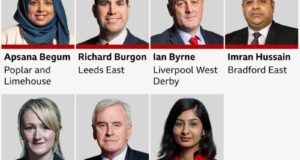 The chancellor, George Osborne, is under renewed pressure over his £4.4bn plans to cut tax credits as the government’s independent social security advisers urged the Treasury to set out the full impact of the policy.
The chancellor, George Osborne, is under renewed pressure over his £4.4bn plans to cut tax credits as the government’s independent social security advisers urged the Treasury to set out the full impact of the policy.
The chairman of the government’s independent social security advisory committee, Paul Gray, told the Guardian ministers had still not set out the full impact of the tax credit cuts nor explained what it means for universal credit, despite sending a letter on 9 September asking for more details.
Gray warned: “Ministers face an urgent task in explaining to benefit claimants how the cuts would hit them, and how it will affect universal credit, and protected groups, especially the disabled. There are very important communications challenges that ministers have not addressed for vulnerable claimants.”
Universal credit is the new benefit that combines in- and out-of-work benefits being introduced across Britain by the Department for Work and Pensions.
Gray said: “We have been given some more information since we wrote our letter in September, but only up to a point and certainly not what we asked for in full by any means. We still do not have the full information to judge its impact.”
His intervention came after Osborne saw off a Labour attempt in the Commons on Tuesday to inflict a defeat on the government over the issue and a separate backbench Labour plan to kill off the cuts in the Lords next Monday. Although the chancellor has repelled the short-term challenge, he will be concerned at the scale of Conservative opposition emerging in public.
Sarah Wollaston, the Conservative chairwoman of the health select committee, became the latest sceptic, telling BBC Radio’s 4 on Wednesday’s programme: “We need to look at all the effects. All of us will have concerns for people that will be hit by this.”
She added that Heidi Allen, a fellow Tory MP, had made “a very powerful speech”in the Commons on Tuesday in which she warned “a single minded determination to run a budget surplus” may be betraying the identity of the Conservatives. Wollaston recognised Osborne was trying to square a circle due to budget pressures.
Despite Osborne rebuffing some of the short-term threats to his plan to make £4.4bn of tax credits cuts, he is still under serious parliamentary pressure to shift.
The work and pensions select committee is to hold an evidence session from leading experts from the Institute for Fiscal Studies and Resolution Foundation on Monday that is intended to set out the scale of the impact on the tax credit cuts, especially among those in work.
The Resolution Foundation is due to produce alternative proposals early in November at an event attended by Conservative writer Tim Montgomerie andFrank Field, the Labour chairman of the work and pensions selection committee.
Peers will consider a motion next Monday urging the government to deliver a full response to the report by the IFS that 3 million families will lose £1,000 a year. Peers are likely at the same time not to pass the statutory instrument that pushes through the tax credit cuts on April 2016 until that report has been delivered, or MPs have had a full debate on the consequences. The motion will not kill off the tax credits cuts outright, partly because many peers fear it would be seen as a constitutional challenge to the authority of the Commons on financial issues.
MPs next Thursday will debate a motion that will have cross-party support urging the government to mitigate the impact of the cuts. Ministers are entitled to ignore such backbench-tabled Commons motions, but it would embarrass them to see large numbers of Conservatives urging Osborne to reconsider.
In a joint statement, Field and the Conservative backbencher David Davis said Thursday’s debate would be a chance to consider the issue on a cross-party, rather than party, basis. They said: “All the MPs requesting the debate wish to have a motion which is designed to help the government meet its fiscal goals while supporting some of our most vulnerable constituents.”
 Weekly Bangla Mirror | Bangla Mirror, Bangladeshi news in UK, bangla mirror news
Weekly Bangla Mirror | Bangla Mirror, Bangladeshi news in UK, bangla mirror news







